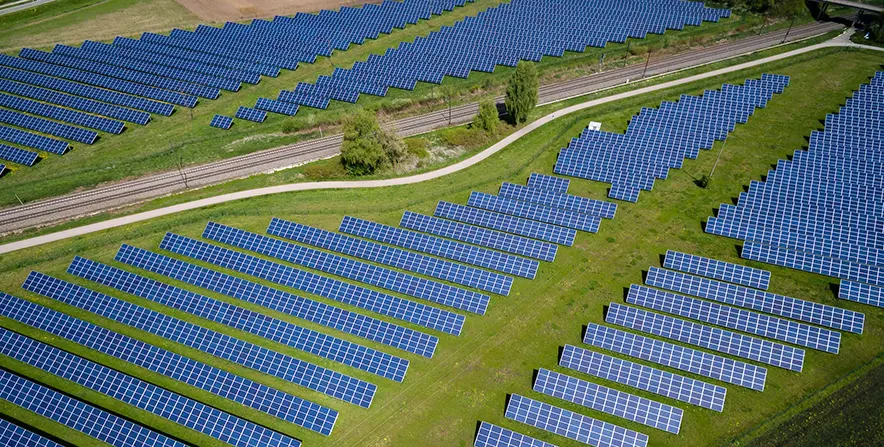I. PRELIMINARY CONSIDERATIONS
At present, guarantees of origin (GOs) are the only available mechanism for consumers in choosing (i.e., supporting) renewable sources of energy production; GOs have been designed at the EU level to support the financial viability of renewable energy projects and stimulate investments in the renewable energy sources (RES) sector.
Currently, the GO market has registered a sharp increase throughout Europe, as purchasing GOs (based on voluntary decisions) provides already certain tangible benefits.

While they are used (and transferred) on only a limited basis in Romania, in several other EU countries (as well as their equivalents in North America) they are highly traded. In this article, we will try to identify arguments for trading the GOs issued in Romania outside the domestic borders (even though Romania is not yet a member of the Association of Issuing Bodies (AIB)¹).
ANRE public reporting(s)
Since 2005 (i.e., the year following the first relevant regulation on GOs introduced in the Romanian legislation), ANRE has published² an annual report on the most-relevant GO-related developments for the previous year. Also, ANRE publishes (on a monthly basis) the list (and their holdings and GO transfers) with information on the producers and, respectively, the suppliers using GOs in Romania within the respective month³.
As per the latest annual report published by ANRE4 (valid for the year 2021), approximately 11 GW of E-RES installed capacity was held by 872 RES producers (prosumers—entities that both produce and consume—are not counted); 65% of the issued GOs corresponded to Hidroelectrica’s production; specific to the photovoltaic industry, out of the 635 PV registered producers only 117 producers had applied for GOs. On a more general E-RES level, only 16% of GOs were used by the suppliers in front of the final consumers (an increase, however, from 12% registered in 2020). In the photovoltaic (PV) sector, the number of issued GOs was practically doubled during 2021 (compared to 2020) and the PV sector registered a GO transfer in 2021.
As such, one may say that, in Romania, the importance of GOs is still to be understood at an overall RES industry level, but the corresponding awareness curve is rising rapidly.
Relevant legal framework
At the EU level, the most relevant piece of legislation is the Directive 2009/28/CE on the promotion of the use of energy from renewable sources […] (the Directive); on a national level, one must highlight the Government Decision no 1232/20115 approving the Regulation on Guarantees of Origin (the Regulation).
In addition, it is worth mentioning the Emergency Ordinance no 163/2022 (aiming to supplement the framework applicable to RES), which entered into force on 6 December 2022 and expressly imposes the amendment of the Regulation within the following six months.
II. WHAT ARE GOs? ISSUANCE AND USE
Definition
As per the Electricity Law no 123/2012, an electricity supplier must ensure the labelling of electricity according to the relevant regulations and regularly inform its final customers on the characteristics and environmental impact of the electricity supplied to them. Within this context, in order to enable the final consumer to differentiate between the E-RES and fossil fuel-based electricity received (at an abstract level, of course, as it is impossible on a physical level), the GOs have been introduced as a mean of certification of the renewable source power generation.
According to Art 4 para 1 under the Regulation, “a guarantee of origin is an electronic document with the unique purpose of providing a final consumer with the proof that a certain quantity of energy was produced from renewable sources”.
Issuance of GOs
Should the final consumer request it, the supplier must ask the producer to perform the procedure for the GO’s issuance and transfer.
As per Art 6 para 1 of the Regulation, a request for GO issuance must be electronically submitted to ANRE within 30 days as of the end of the production period for which the GO is requested (GOs may be requested on a semestrial, quarterly or monthly basis). The application must have enclosed justifying documentation; ANRE may request (and the producer is obliged to provide) access to the producing E-RES facility/ies (in order to verify authenticity of the producer’s statements). Once the application is considered complete, ANRE will issue the requested GO(s) within 10 days. The issuance date of a GO is considered the date of its registration with the GO unique register kept by ANRE (the Register).
One GO is issued for 1 MWh of E-RES delivered into the grid/to the final consumer. A GO’s validity term is for one year as of issuance.
Use of a GO
A GO is used when the supplier, upon a customer’s request, refers to it in order to prove the correctness of the information listed in the label of the supplied energy. The supplier must notify ANRE of such use within 15 days (in which case, ANRE shall withdraw the GO from the Register).
III. TRANSFER OUTSIDE ROMANIA
Transfer between market participants
The Regulation sets forth that a GO may be transferred:
- Between different energy producers
- From a producer to a supplier
- Between suppliers6.
It is highly relevant to mention that under Art 17 para 2, the Regulation expressly allows for GO to be transferred to other participants in the energy market within the EU.
In case of transfer, the GO holder must request ANRE to operate the transfer within the Register. The registration of a transfer has a constitutive effect (i.e., the transfer takes place upon the registration of the transfer, not upon the execution date of the transfer agreement concluded between two or more parties). ANRE must operate the transfer within five working days as of receipt of the transfer application.
In analyzing the transferability of GOs outside Romania, one must consider that GO trading is completely decoupled from the physical power trading (as expressly mentioned under Art 18 of the Regulation); also, the Directive requires member states to accept the GOs issued by another Member State. Only if a Member State has a “well-founded doubt about its accuracy, reliability and veracity” (Directive 2009/28/EC, Article 15(9)), such Member State can refuse a foreign GO (upon notification to the Commission, justifying the refusal). As such, Romanian-issued GOs can be traded outside Romanian territory under the conditions laid out in the Directive.
AIB membership
While on a theoretical level there are no legal barriers to cross-border trade of Romanian issued GOs, one should be mindful that most of the European countries have one (or more) representative body as members of the AIB. Its purpose is to develop, use and promote the European Energy Certificate System, which is a standardized system of energy certification for all energy carriers throughout the EU. Romania is not yet member of the AIB and this is a practical barrier to cross-border trade of Romanian issued GOs. Yet, it is worth mentioning that even today there are international traders willing to trade Romanian GOs to be issued for new RES facilities.
IV. FINAL REMARKS
GO’s equivalent in the United States is called a renewable energy certificate (REC). Trading in RECs has gained substantial traction in the last years and it is expected that GO trading in Europe (which is already at a high level) to follow the US trend.
At the national level, Romania must take several immediate steps. One is the adaptation of the Regulation (issued in the previous RES wave) to the current realities/developments in the Romanian RES market. Another absolutely necessary step is the affiliation to the AIB. Romania must become a member of AIB in order to enable substantial trading of GOs and enable the shift in perception of the GOs as simple “labels” towards a financial instrument whose main purpose is to enhance production of renewable energy.
Click here to read the original article published by Ally Law member firm Vlasceanu & Partners.
1 Association of Issuing Bodies (https://www.aib-net.org/)
2 As imposed under Art 24 para 4 of the Regulation (further defined).
3 As per Art 24 of the Regulation, ANRE must release such annual report by 30 March of the following year.
4 It abolished the GD no 1429/2004 previously approving the Regulation for certification of renewable energy sources – the first relevant normative act in our legal framework.
5According to Art 19 of the Regulation, the energy quantity for which a supplier transfers the GOs is to be deducted from its energy mix relevant for labelling its energy towards the final consumers.






